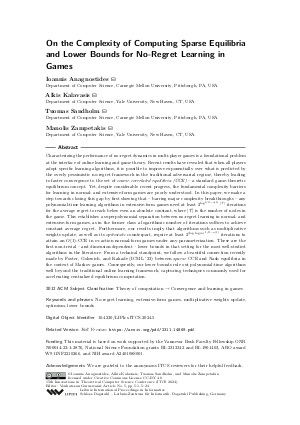LIPIcs.ITCS.2024.5.pdf
- Filesize: 0.94 MB
- 24 pages

 Creative Commons Attribution 4.0 International license
Creative Commons Attribution 4.0 International license

























































































Feedback for Dagstuhl Publishing